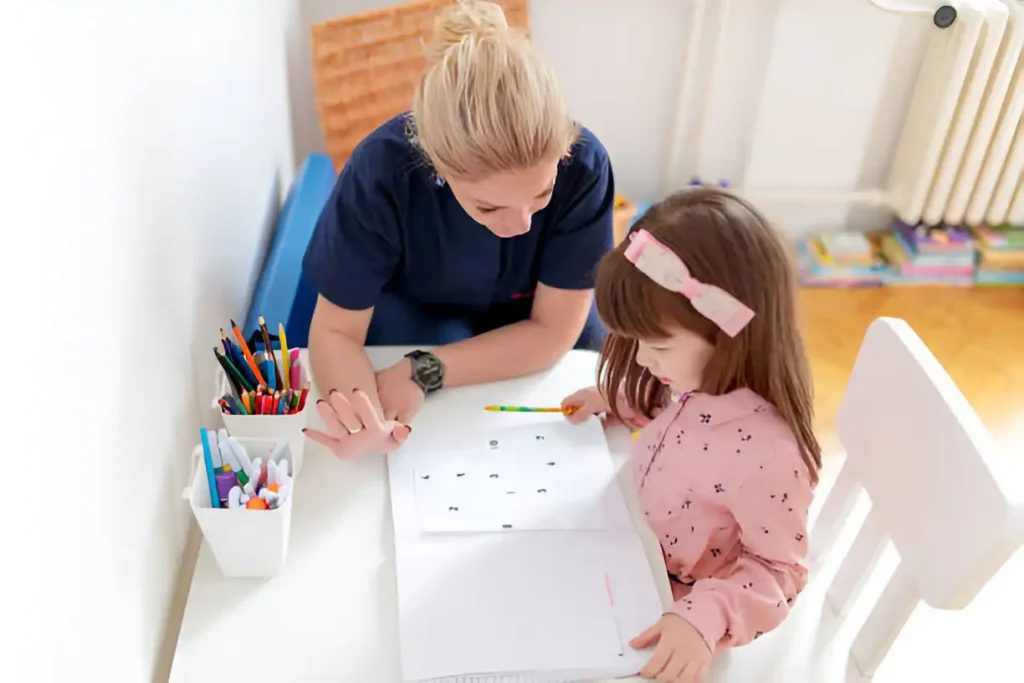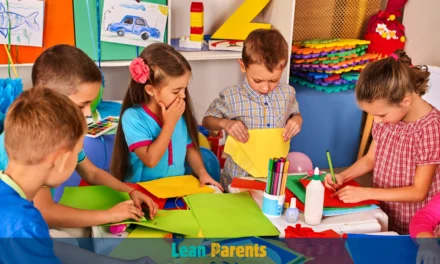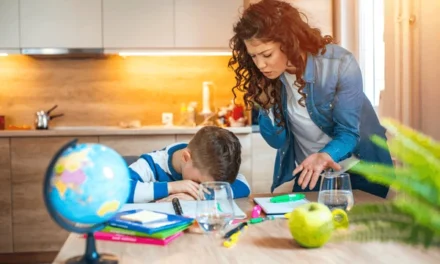Introduction: Child Memory Guide.
Have you ever marveled at your child’s very good memory? Perhaps they effortlessly recall the smallest details, surprising everyone around them. Understanding how memory works and why your child seems to have an unusually strong one can help you nurture their potential. In this article, we’ll explore the factors behind a very good memory in children, offering insights and practical tips to support them.
Understanding the Importance of Memory in Child Development
Memory plays a pivotal role in a child’s development. It serves as the foundation for learning, problem-solving, and emotional growth. From storing early experiences to helping your child learn new skills, memory is what drives development forward. A very good memory allows a child to retain and apply knowledge, making it easier for them to grasp new concepts, form relationships, and navigate the world with confidence. As parents and educators, understanding this importance allows us to create environments that foster this essential skill.
A very good memory enhances a child’s ability to learn quickly and adapt to different situations. Whether it’s remembering the names of friends, the route to school, or lessons from class, memory supports every aspect of a child’s daily life. By encouraging activities that nurture memory development, parents can help their children become more adept at facing challenges, both academically and socially.
What Does It Mean to Have a Very Good Memory?
Having a very good memory doesn’t just mean being able to remember facts. It also involves the ability to recall experiences, solve problems by drawing on past knowledge, and link different pieces of information creatively. A child with a very good memory often displays a remarkable capacity to absorb and retain information across multiple domains—from academics to social interactions—enhancing their adaptability and learning efficiency.
For a child, a very good memory could mean recalling the smallest details from a trip to the zoo, remembering every word of a favorite bedtime story, or quickly memorizing song lyrics. Such capabilities often extend beyond mere rote memorization; they encompass the ability to understand and apply the information in various contexts. This skill contributes not only to academic performance but also to emotional intelligence, as it allows children to navigate social situations by remembering people’s preferences and past interactions.
Signs Your Child Might Have a Very Good Memory
How can you tell if your child has a very good memory? Look for signs such as effortlessly remembering details from long ago, recalling events with precision, and an uncanny ability to connect seemingly unrelated concepts. Such children may also enjoy storytelling, often adding vivid details. They might also be quicker at memorizing song lyrics, facts, or sequences compared to their peers.
Children with a very good memory may show a preference for games involving memory skills, such as matching cards or puzzles. They might be able to recall not only what happened but also how they felt during an event, demonstrating a deep emotional connection to their memories. Additionally, these children may find it easy to learn new routines, remember people’s names, or recall places they have visited, even if it was a long time ago.
How Memory Develops in Children: A Quick Overview
Memory development in children occurs in stages. Infants begin by recognizing familiar faces and sounds, which evolve into the ability to remember objects and simple events. By the preschool years, children develop the capacity for episodic memory, allowing them to recall personal experiences. As they grow, the ability to organize and retain more complex information becomes more refined, paving the way for strong learning abilities in school.
During infancy, memory starts with basic recognition. Babies begin by recognizing their parents’ faces and voices, creating the first foundation for memory. As they reach toddlerhood, children start developing short-term memory, enabling them to remember recent experiences such as the sequence of a favorite song or the location of their toys. As children grow, their episodic and semantic memory (general knowledge about the world) begins to develop, leading to improved problem-solving and learning abilities.
By the time they reach school age, children can use memory strategies, such as rehearsal (repeating information) or categorization, to store information more effectively. This development is critical for academic success, as it allows them to memorize lessons, apply learned concepts, and perform well on tests. Understanding these stages helps parents provide appropriate support at every phase of memory development.
The Science Behind Memory: How Does It Work?
Memory functions through a complex network involving neurons and synapses in the brain. When a child learns something new, the brain forms new connections. The hippocampus—a key structure in the brain—is vital in processing and storing these memories. Repetition and emotional engagement help strengthen these neural pathways, allowing memories to move from short-term to long-term storage.
The brain’s plasticity, or its ability to change and adapt, plays a crucial role in memory formation. When children are exposed to new information, their brains create new neural connections. Repetition helps reinforce these connections, making it easier for children to recall information later. The hippocampus acts like a processing center, converting short-term memories into long-term ones, while other parts of the brain help store different types of memories, such as procedural (how to do things) or declarative (facts and information).
Emotion also significantly impacts memory. Positive emotions often lead to stronger memories, which is why experiences like a fun vacation or a birthday party are easily remembered. Conversely, negative emotions can also enhance memory retention, although they might have different implications for a child’s well-being. Understanding how memory works at a scientific level allows parents to create learning experiences that are engaging, meaningful, and effective.
Why Does My Child Have a Very Good Memory? The Shocking Truth Revealed
The reason behind your child’s very good memory might not be as mysterious as you think. Often, it’s a combination of genetics, environment, and stimulating activities. Children who are given ample opportunities to explore, interact, and learn tend to develop better memory skills. Surprisingly, emotional attachment also plays a significant role—when children have positive, engaging experiences, they are more likely to remember them vividly.
Genetics certainly play a role in determining a child’s memory capabilities. If you or other family members have a very good memory, there’s a good chance that your child inherited some of those traits. However, genetics is only one part of the equation. The environment—filled with stimulating activities, rich language exposure, and positive reinforcement—also plays a significant role in shaping memory skills.
Another important factor is emotional engagement. When children feel emotionally connected to an experience, they are more likely to remember it. This is why memories tied to strong emotions, such as love, excitement, or curiosity, tend to be more vivid and long-lasting. Engaging your child emotionally during learning activities—whether through storytelling, hands-on experiments, or games—can significantly boost their ability to remember information.
Genetic Factors: Is Memory Quality Inherited?
Genetics can significantly influence memory capacity. If you or someone in your family has a very good memory, there’s a higher chance that your child will too. However, genes are just one part of the puzzle. Environmental factors, upbringing, and lifestyle choices are equally crucial in shaping memory development.
Inherited traits may contribute to how efficiently the brain processes and stores information. Studies have shown that genes affect the density of neurons in the hippocampus, which can impact memory abilities. However, a supportive and enriched environment is necessary to unlock this genetic potential. This means that even if a child inherits good memory genes, those genes need to be activated and nurtured through positive experiences and effective learning opportunities.
Additionally, the way parents interact with their children can significantly affect how memory develops. Parents who frequently talk, read, and engage in activities with their children create a more stimulating environment that encourages memory growth. Genetics may lay the foundation, but the environment builds the structure upon which a child’s memory thrives.
The Role of Environment in Shaping Memory Skills
The environment your child is exposed to has a profound impact on their memory. A stimulating environment rich in language, social interaction, and sensory experiences can boost a child’s cognitive abilities. Children who are encouraged to explore, play, and engage with their surroundings tend to form more robust neural connections, improving their memory retention skills.
Creating a memory-friendly environment means providing opportunities for active learning. This could involve visiting museums, exploring nature, reading books together, or even cooking as a family. Each of these activities introduces new information, encouraging the brain to make connections and store memories. Social interactions also play an essential role, as conversations and shared activities help solidify learned experiences.
Sensory experiences are another important aspect of memory development. Children who have opportunities to touch, see, hear, and move are more likely to retain information, as these multi-sensory experiences engage different parts of the brain. Providing a variety of sensory activities—from arts and crafts to music and outdoor play—helps enhance memory by involving multiple senses, which aids in better recall.
The Impact of Nutrition on Memory: Foods That Boost Brain Power

Nutrition is a vital component of cognitive development. Omega-3 fatty acids, found in fish like salmon, are known for boosting brain function. Antioxidants from fruits such as blueberries, and vitamins from leafy greens, are also essential. A balanced diet that includes proteins, healthy fats, and complex carbohydrates ensures the brain has the fuel it needs to store and process memories effectively.
Foods rich in omega-3s, such as salmon, walnuts, and flaxseeds, play a significant role in building brain cells and enhancing communication between neurons. Antioxidants, found in colorful fruits like berries, help protect the brain from oxidative stress, which can impair memory. Leafy greens, like spinach and kale, are packed with vitamins and minerals that support cognitive function.
It’s also important to include complex carbohydrates in your child’s diet, such as oats and whole grains, as they provide a steady source of glucose, the brain’s primary energy source. Proper hydration is another often-overlooked factor. Dehydration can negatively affect attention and memory, so ensuring your child drinks enough water is crucial for optimal brain performance. A nutritious diet acts as the fuel that powers your child’s very good memory, enabling them to learn and retain information effectively.
How a Stress-Free Childhood Enhances Memory Retention
Stress can impair memory by disrupting the natural function of the hippocampus. Creating a stress-free environment—where your child feels safe, supported, and encouraged—can foster better memory retention. Techniques like mindfulness, open communication, and ensuring your child feels emotionally secure help in keeping stress levels low and memory capabilities high.
When children experience chronic stress, their bodies release cortisol, a hormone that can negatively impact the hippocampus, which is crucial for memory formation. High levels of stress can hinder a child’s ability to encode and retrieve memories, affecting their academic performance and overall well-being. By minimizing stress and creating a nurturing environment, parents can help improve their child’s capacity for memory retention.
Mindfulness activities, such as deep breathing exercises, yoga, or even simple meditation, can help children manage stress and improve focus. Open communication is also key—when children feel heard and understood, they are less likely to experience anxiety, allowing them to learn and retain information more effectively. Encouraging a balanced lifestyle with playtime, relaxation, and learning can create the ideal conditions for a child’s very good memory to flourish.
The Influence of Play on Memory: Learning Through Fun
Play is one of the most effective tools for memory enhancement. Games that involve sequences, puzzles, or role-playing are particularly effective. Such activities not only make learning enjoyable but also help cement knowledge in a child’s mind. When children play, they are actively engaging their brains, making neural connections that improve both memory and learning.
Playing memory games, such as “Simon Says” or matching cards, can help children practice and improve their recall abilities. Role-playing games that involve acting out different scenarios can also enhance memory, as children remember the roles, actions, and dialogue they created. Board games that require strategy, such as chess, help in developing working memory by requiring children to remember rules and think several steps ahead.
Physical play, such as outdoor activities and sports, also benefits memory. Exercise increases blood flow to the brain, promoting the growth of new neurons and improving cognitive function. Encouraging children to engage in both structured and unstructured play allows them to develop their memory skills in a fun, stress-free manner, making learning an enjoyable experience.
Does Technology Play a Role in Your Child’s Very Good Memory?
Technology, when used appropriately, can play a beneficial role in enhancing memory. Educational apps, puzzles, and games designed for cognitive development can stimulate a child’s memory. However, moderation is key. Excessive screen time may have detrimental effects, so it’s essential to strike a balance between digital and offline activities.
Interactive learning tools, such as educational apps and video games, can provide children with engaging ways to practice their memory skills. Apps that focus on problem-solving, sequences, and recall can effectively enhance a child’s very good memory by making learning interactive and enjoyable. However, too much screen time can lead to decreased attention span and affect memory negatively.
Parents should aim to incorporate technology in a way that complements traditional learning. For example, using an app that teaches new vocabulary could be followed by a hands-on activity, such as creating flashcards. By balancing screen time with physical activities and face-to-face interactions, parents can harness the benefits of technology without the negative side effects.
The Surprising Link Between Sleep and Memory in Children

Sleep is critical for memory consolidation. During sleep, the brain processes and stores information gathered throughout the day. Children require more sleep than adults to support their rapid development, and a consistent sleep routine ensures that their memories are being effectively encoded and consolidated.
During different stages of sleep, the brain processes various types of memories. Deep sleep, for instance, is when the brain consolidates declarative memories—facts and information learned during the day. REM sleep, on the other hand, is associated with processing emotional memories and enhancing problem-solving skills. Ensuring that children get enough quality sleep helps in the effective storage and retrieval of information.
A regular bedtime routine can help improve sleep quality, which in turn boosts memory. Activities such as reading before bed, avoiding screens, and creating a calming environment can signal the body that it’s time to wind down. Ensuring your child gets adequate sleep is one of the simplest yet most effective ways to support their very good memory.
The Role of Early Reading in Building a Very Good Memory
Reading is a powerful way to enhance memory. When children read, or are read to, they visualize characters and plotlines, helping develop their recall abilities. Early reading habits foster vocabulary growth and comprehension skills, which in turn improve memory by creating more neural connections that facilitate easier retrieval of information.
Reading encourages children to think critically and engage with the content, which strengthens their memory. When they visualize a story, remember characters, and predict plot twists, they are actively using their memory skills. Picture books, in particular, help young children associate images with words, reinforcing both visual and verbal memory.
Encouraging a love for reading from an early age can have long-term benefits. Storytime can be a daily ritual that not only enhances a child’s vocabulary but also their memory. Discussing the story afterward—asking questions about the plot or characters—further reinforces memory by prompting recall and comprehension. Reading is a habit that, when nurtured, can significantly boost a child’s memory and overall cognitive abilities.
Why Visual Learning Techniques Help Your Child Remember More
Visual learning engages multiple parts of the brain, making it easier for children to recall information. Techniques such as mind maps, flashcards, and diagrams allow children to link concepts visually, which strengthens their ability to remember complex details. Encouraging your child to draw or create visual aids can significantly enhance their memory retention.
Mind mapping, for instance, helps children organize information in a visual format, allowing them to see connections between different ideas. This method is particularly useful for subjects like science or history, where there are multiple related concepts. Flashcards are another effective tool, as they encourage active recall and repetition, helping move information from short-term to long-term memory.
Visual learning also includes creating diagrams or illustrations to explain concepts. For example, when learning about the solar system, a child might draw the planets and label them. This hands-on, creative approach engages different senses, making the information more memorable. Encouraging children to use visual learning techniques can significantly improve their ability to retain and recall information.
How Emotional Connections Make Memories Stronger
Emotional experiences have a lasting impact on memory. Memories that are tied to strong emotions—whether positive or negative—are often easier to recall. For children, creating positive emotional connections during learning helps solidify information. For instance, sharing a joyful reading session or a rewarding learning experience can create lasting memories that are retained far longer.
The amygdala, a part of the brain associated with emotions, plays a role in enhancing memory retention. When a child experiences something emotionally significant, the amygdala activates, enhancing the consolidation of that memory. This is why children often remember emotionally charged events, such as a surprise party or an exciting trip.
Parents and teachers can use this to their advantage by creating emotionally engaging learning experiences. For example, turning a math lesson into a fun game or using storytelling to teach history can help children form positive associations with the subject matter, making it easier for them to remember the information. Emotional engagement is a powerful tool for boosting memory retention in children.
Common Myths About Children with Very Good Memory
There are many misconceptions about children with very good memory. One myth is that a good memory means a child is a ‘genius’ or will excel at everything. In reality, memory is just one aspect of cognitive ability. Another myth is that very good memory skills make learning easy—while it can help, other factors like motivation and interest are also critical.
A common misconception is that a child with a very good memory doesn’t need as much practice or reinforcement. While they may pick up information quickly, repetition is still important for solidifying knowledge and ensuring it can be applied in different contexts. Another myth is that children with strong memories have no difficulty with learning disabilities; however, a child can have an excellent memory and still struggle with areas such as reading comprehension or mathematical reasoning.
It’s also important to note that memory abilities can vary across different domains. A child might have a very good memory for facts but struggle with procedural memory, such as remembering how to perform a series of physical actions. Understanding these nuances helps parents set realistic expectations and provide well-rounded support for their child’s overall development.
How to Test Your Child’s Memory Skills at Home

Testing your child’s memory doesn’t require complicated tools. Simple activities, such as asking your child to recall the sequence of events from a story or remember a shopping list, can help gauge their memory skills. You can also play memory games that involve matching cards or recalling missing items from a group to evaluate and improve their retention capabilities.
Another effective way to test memory is through storytelling. Ask your child to retell a story you’ve read together, focusing on the sequence of events and key details. This helps you assess both their recall and understanding. You could also play games like “I Went to the Market,” where each player adds an item to a list and tries to remember all previous items.
Creating and using flashcards is another useful method. Show your child a set of cards with pictures or words, then turn them over and ask them to recall the items. These fun and engaging activities not only test memory but also help improve it through regular practice and reinforcement.
Nurturing Your Child’s Memory: Practical Tips for Parents
Supporting your child’s memory development involves creating a nurturing environment and providing opportunities for active engagement. Here are some practical tips:
- Encourage Regular Practice: Repetition is key to memory retention. Help your child review lessons, play memory games, and revisit stories they enjoy.
- Use Multi-Sensory Techniques: Engage multiple senses to help your child remember better. For example, when teaching new vocabulary, use pictures, sounds, and even gestures to reinforce the learning.
- Provide Positive Reinforcement: Celebrate your child’s memory successes, whether big or small. This boosts their confidence and motivates them to keep learning.
- Create a Consistent Routine: A stable routine helps children anticipate and remember activities. Consistency in mealtimes, bedtime, and study sessions can improve memory retention.
- Incorporate Emotional Engagement: Make learning experiences emotionally meaningful. Storytelling, role-playing, and exploring subjects that fascinate your child can create strong emotional bonds with the information.
FAQ
What Are Common Signs of a Very Good Memory in Kids?
Common signs include recalling events with precision, remembering details from long ago, and quickly memorizing facts, songs, or sequences. They may also excel in games involving memory skills, like puzzles or matching cards.
Is It Normal for a Child to Have a Very Good Memory?
Yes, it’s entirely normal. Children have different strengths, and some naturally have a very good memory. This can be influenced by genetics, environment, and lifestyle.
How Much Does Genetics Influence Memory?
Genetics play a role in memory abilities, but environment, lifestyle, and experiences also significantly shape a child’s memory. Even if a child has a genetic predisposition, positive experiences and proper nurturing are necessary for full potential development.
Can Nutrition Really Improve My Child’s Memory?
Absolutely! Proper nutrition provides the brain with essential nutrients that boost memory. Foods rich in omega-3 fatty acids, antioxidants, vitamins, and complex carbohydrates can significantly improve brain function.
What Foods Should I Give My Child for Better Memory?
Foods like salmon, walnuts, blueberries, leafy greens, eggs, and whole grains are excellent for boosting memory and overall brain health.
Does Screen Time Affect Memory Development?
Yes, excessive screen time can negatively affect memory and attention span. However, moderate and purposeful use of technology, such as educational apps, can positively stimulate memory.
How Important Is Sleep for My Child’s Memory?
Sleep is crucial for memory consolidation. It allows the brain to process and store information from the day. A regular sleep routine with enough hours is essential for optimal memory function.
What Activities Can I Use to Test My Child’s Memory?
You can use activities like recalling stories, memory matching games, and creating flashcards. Simple games like “I Went to the Market” can also help evaluate and strengthen your child’s memory.
Should I Be Worried if My Child Has Memory Issues?
Occasional forgetfulness is normal, but if memory issues are persistent or affect your child’s daily functioning, it might be worth consulting a healthcare professional for assessment.
Can a Very Good Memory Make Learning Easier for My Child?
Yes, a very good memory can make it easier for children to retain information and apply knowledge. This advantage often leads to better academic performance and enhanced problem-solving skills.
How Can I Support My Child’s Memory Development at Home?
Encourage regular practice, use multi-sensory learning techniques, create a consistent routine, and provide emotional engagement and positive reinforcement. Play memory-enhancing games to make learning enjoyable.
Are There Any Negative Aspects to Having an Exceptional Memory?
Sometimes, children with strong memories may face pressure to remember everything perfectly. They may also struggle with perfectionism or anxiety. It’s important to provide balanced support and ensure they feel comfortable making mistakes.
Can Stress Affect My Child’s Memory?
Yes, stress can negatively affect a child’s memory. High levels of cortisol, a hormone released during stress, can interfere with the function of the hippocampus, the area of the brain responsible for memory formation. Chronic stress can make it difficult for children to store and retrieve information effectively. To support your child’s memory, it is important to create a calm and supportive environment, use stress-relief techniques, and encourage open communication.






Trackbacks/Pingbacks